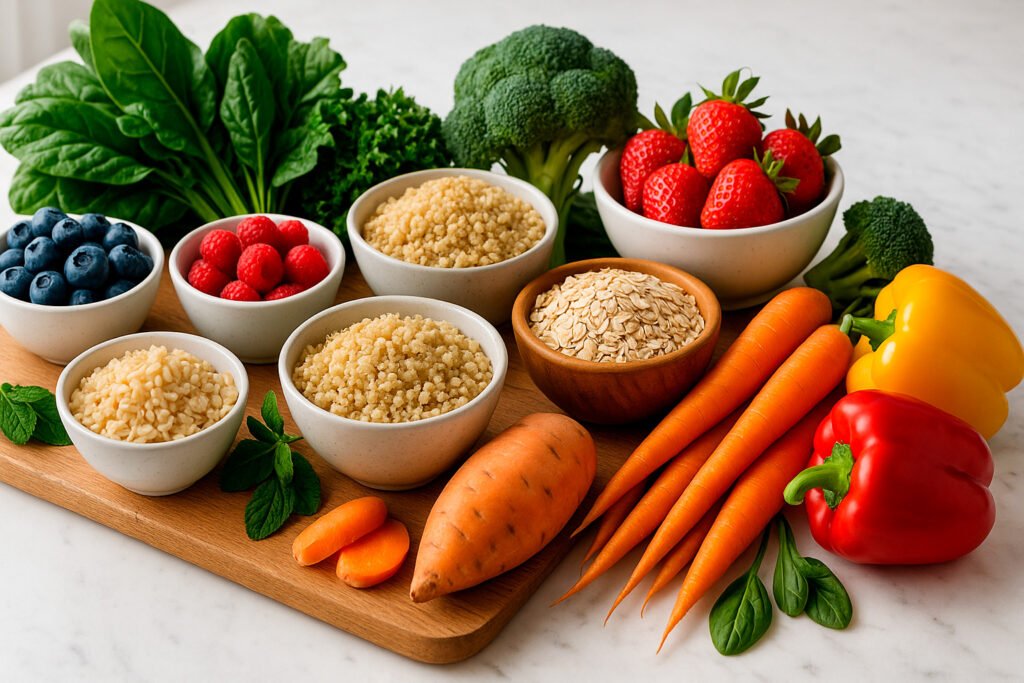Page Contents
ToggleDo you ever feel like your stomach is a balloon that’s been inflated too much? That uncomfortable, tight sensation in your belly isn’t just in your head – it’s a real condition that affects millions of North Americans daily. If you’re tired of dealing with that persistent feeling of fullness and pressure, you’re not alone. Understanding why your stomach feels bloated and discovering natural ways to find relief can transform how you feel every day.
For those seeking a comprehensive approach to digestive wellness, exploring how targeted supplements can support both gut and liver function is a crucial step. You can learn more in our comprehensive review of Finessa.
What Does a Bloated Stomach Actually Feel Like?
A bloated stomach creates a distinct sensation of tightness, pressure, and fullness in your belly area. Unlike what many people think, you don’t always see visible swelling – sometimes it’s purely that uncomfortable internal feeling. The intensity can range from mildly annoying to downright painful, and for some people, it becomes a frustrating recurring problem that impacts their daily life.
According to medical research, between 10% and 25% of healthy adults experience occasional abdominal bloating, with up to 75% describing their symptoms as moderate to severe. What’s particularly interesting is that only about half of people who feel bloated actually show visible abdominal distension.
Understanding the Root Causes of Stomach Bloating
Gas Production and Digestive Issues
The most common culprit behind stomach bloating is excess intestinal gas. Your digestive system naturally produces gas as gut bacteria break down carbohydrates through fermentation. However, when this process goes into overdrive, you end up with that uncomfortable bloated feeling.
This happens when too many carbohydrates reach your gut bacteria without being properly absorbed earlier in digestion. Several factors can trigger this:
- Eating too much too quickly
- Food intolerances (lactose, gluten, or specific foods)
- Gastrointestinal conditions
- Certain medications that affect digestion
- Carbonated beverages and artificial sweeteners
Restoring microbial balance with a targeted probiotic like PrimeBiome may help reduce excess fermentation and digestive discomfort.
Digestive System Backup
Sometimes bloating occurs because digestive contents – solids, liquids, and gas – build up in your system. This can happen when there’s a backup or restriction somewhere in your digestive tract, or when the muscles responsible for moving things along aren’t working optimally.
Supporting this entire system requires a focus on long-term gut and liver health, as they work together to process food efficiently. For a closer look at a formula designed to optimize this connection, see our in-depth analysis of Finessa.
Taking steps to support digestion with supplements such as PrimeBiome may assist in keeping your system moving and your gut microbiome functioning optimally.
Hormonal Influences on Bloating
If you’re a woman, you’ve probably noticed that bloating follows your menstrual cycle rather than just what you eat. You’re definitely not imagining this connection – up to 75% of women experience bloating before and during their periods.
Estrogen and progesterone fluctuations affect bloating in multiple ways. Estrogen causes water retention, which contributes to that puffy feeling. These hormones also influence your digestive system’s motility – how quickly food moves through your system. Additionally, hormonal changes can affect your visceral sensitivity, making you more aware of normal digestive processes.
Natural Relief Strategies for Bloated Stomach
Immediate Relief Strategies
When you’re dealing with acute stomach bloating, several natural approaches can provide relatively quick relief:
- Stay hydrated: Drinking water helps flush your system and can reduce water retention
- Gentle movement: A short walk or light stretching can help stimulate digestion
- Herbal teas: Peppermint, ginger, and chamomile teas have natural anti-inflammatory properties
- Warm compress: Applying gentle heat to your abdomen can help relax muscles

Dietary Modifications for Long-term Prevention
Making thoughtful changes to your eating habits can significantly reduce bloating frequency:
- Eat mindfully: Slow down during meals and chew thoroughly. This gives your digestive enzymes time to work properly and reduces the amount of air you swallow.
- Monitor portion sizes: Large meals can overwhelm your digestive system. Try eating smaller, more frequent meals throughout the day.
- Identify trigger foods: Keep a food journal to track which foods consistently cause bloating. Common culprits include beans, cruciferous vegetables, dairy products, and high-sodium processed foods.
- Stay regular: Constipation can worsen bloating. Include fiber-rich foods in your diet, but introduce them gradually to avoid making bloating worse initially.
While dietary changes are foundational, some individuals find that a natural supplement can provide consistent, daily support for digestive regularity and comfort. If this sounds like a good fit for you, consider reading our detailed review of Finessa.

For long-term relief, many find success combining dietary improvements with gut-focused probiotics like PrimeBiome, designed to support microbial balance and reduce bloating at the root cause.
Lifestyle Factors That Make a Difference
Stress Management
Chronic stress affects your digestive system in numerous ways. When you’re stressed, your body diverts energy away from digestion, which can slow down the process and contribute to bloating. Regular stress-reduction practices like meditation, yoga, or even just taking a few deep breaths before meals can help.
Physical Activity
Regular exercise stimulates healthy digestion and can help prevent the buildup of gas in your intestines. You don’t need intense workouts – even a daily 15-minute walk after meals can make a noticeable difference.

Sleep Quality
Poor sleep affects hormone production and digestive function. Prioritizing 7-9 hours of quality sleep can help regulate the hormones that influence bloating, particularly if you experience cyclical bloating related to your menstrual cycle.
When to Seek Professional Help
While occasional bloating is normal, certain situations warrant medical attention. Consider consulting with a healthcare provider if your bloated stomach:
- Persists for more than a few days
- Gets progressively worse
- Is accompanied by severe pain, fever, or vomiting
- Interferes with your daily activities
- Occurs with unexplained weight loss
A healthcare professional can help identify underlying conditions like irritable bowel syndrome, food intolerances, or hormonal imbalances that might be contributing to your symptoms.
Taking Control of Your Digestive Health
Dealing with frequent stomach bloating doesn’t have to be your normal. By understanding the various factors that contribute to bloating – from what you eat to how your hormones fluctuate – you can take targeted steps to find relief.
Start by paying attention to patterns in your bloating episodes. Keep notes about what you eat, when symptoms occur, and how you’re feeling overall. This information can be incredibly valuable, whether you’re working on solutions independently or seeking professional guidance.
Remember, your digestive health is connected to your overall well-being. Small, consistent changes in your eating habits, stress management, and lifestyle choices can lead to significant improvements in how you feel every day.
As part of this holistic approach, a high-quality supplement can help maintain the health of your core digestive organs. To understand how one such product works, explore our complete breakdown of Finessa and its benefits for the gut-liver axis.
You deserve to feel comfortable in your own body, and with the right approach, that bloated feeling doesn’t have to control your life.
Sources
This article was inspired by and adapted to better serve the readers of Best Natural Health Products from “Bloated Stomach: Causes, Tips to Reduce & When to be Concerned”. Cleveland Clinic. Available at: https://my.clevelandclinic.org/health/symptoms/21740-bloated-stomach. Accessed on: June 16, 2025.
Sarah Jenkins is a Senior Wellness Researcher and former science educator. She specializes in "Ingredient Provenance"—decoding complex clinical studies to ensure every product is safe and historically verified. Sarah translates dense medical data into actionable advice for families and individuals.
